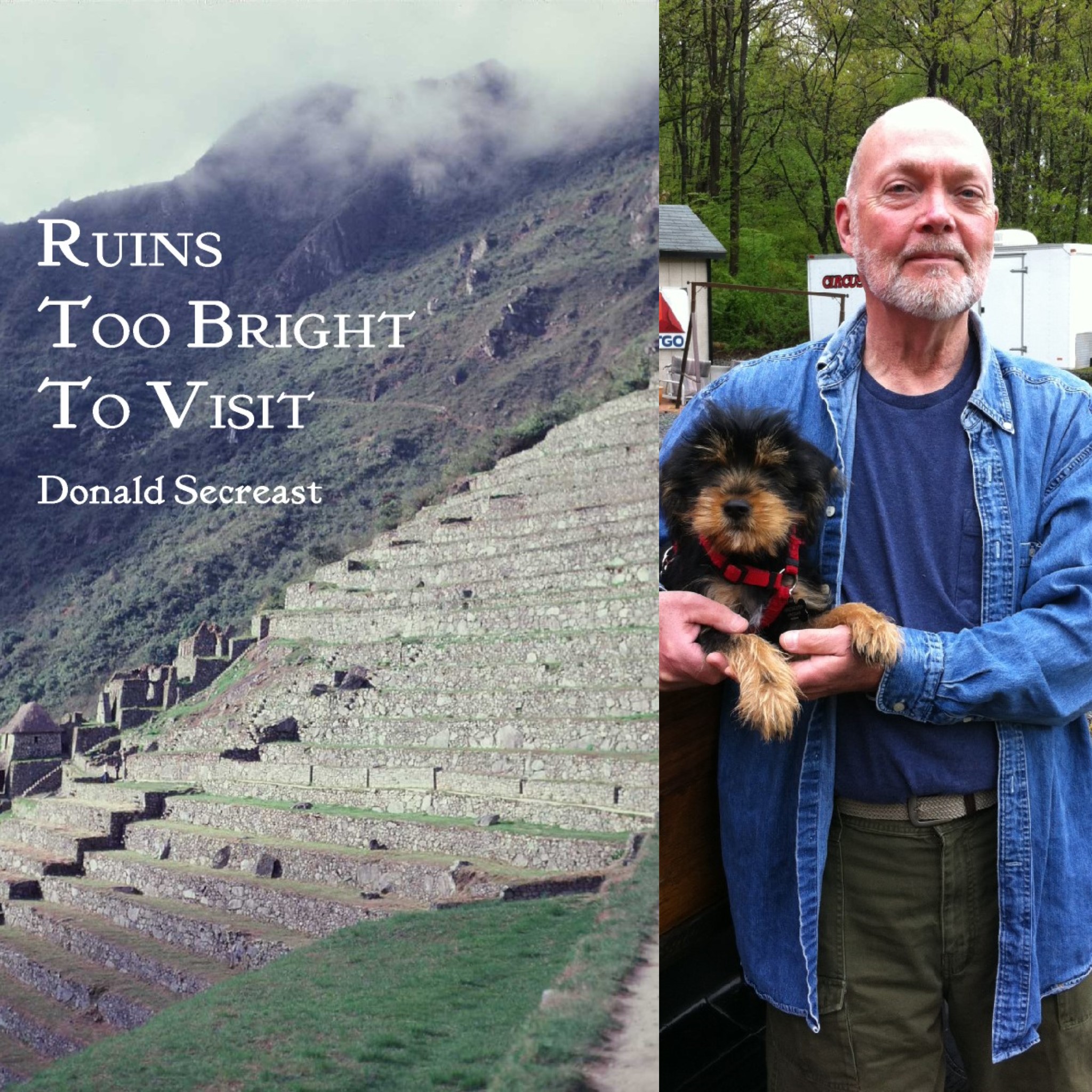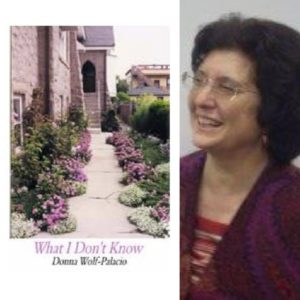Description
Ruins Too Bright To Visit
by Donald Secreast
$14.49, paper
Radford University English Professor Donald Secreast attended Appalachian State University, Johns Hopkins, and the University of Iowa, where he received his Ph.D. in English. He has published two short story collections: The Rat Becomes Light (Harper & Row, 1990) and White Trash, Red Velvet (HarperCollins, 1993). Many of his stories revolve around a furniture factory in Lenoir, North Carolina. He has traveled through Peru, Ecuador, and Bolivia with Charles Frazier and co- authored a Sierra Club Travel Guide, Adventuring in the Andes (1985).






Aaron Lee Moore –
In this candid collection of picturesque travel poems we view Donald Secreast’s acute, hypersensitive mind imposing a pronounced outlook upon the splendid scenery of the Andes Mountains. As in Wallace Stevens’ “Anecdote of the Jar,” Secreast’s consciousness takes dominion everywhere, seeking to impose meaning and intentionality upon the slovenly wilderness: “Streets receive the rain / scheming / to make something green of it” (11). In this surreal world, matter reflects the mind, as with the quirky poem “The Fissure of Santa Cruz,” rendered in second person narration, when “you” must hitch a ride from a drunk driver on a “lugubrious truck” for a ridiculously high price “because it is getting late / and all day the fissure of the Santa Cruz / has been threatening to swallow you” (9). His relation to this foreign environment is most often rendered through a distinct and intriguing use of synesthetic imagery: “This is the blue of a sound / that keeps you awake in a place / you’ll visit only once” (20); “a lake whose color / if made into a serum / could cure / the entire population of disappointment” (8). Like a painter, Secreast’s brush employs colors in a playful manner. Some of the poems are monochromatic, like “Snow Ledges Above the Ulta Valley” in which the frequent repetition of blue imagery reflects a deep and brooding melancholy: “for the blue of the snow / for the taste of the water at four o’clock / in the morning for the memory you have / of a woman you last saw five years ago” (20). Like Edgar Allan Poe’s works, at the crux of the collection there’s a haunt, an impregnable heartache, and an innocent psychic meandering toward femininity: “The hems of their skirts / getting damp their eyes dark / as the seeds in the center / of your watermelon you divide / your time evenly between extracting / seeds from pulp and watching / the women load their baskets / piece by piece” (10).
As with Emily Dickinson’s judicious use of dashes, Secreast’s signature poems are equally distinct with his judicious use of caesuras, alliteration (“serene severities separated by a glacier” 20), and sparse punctuation, which strikes me as being heavily influenced by the Anglo-Saxon poetic tradition. Of Germanic-Bavarian ancestry, Secreast’s particular perspective is informed by his Appalachian identity, having grown up in Lenoir, North Carolina. “Hills like Marble Cake” is a superlative poem in the collection because it’s relevant to anyone who has traveled and felt their intrusion upon another culture—the palpable sense of culture gap. In the last stanza the speaker offers advice: “The secret is to treat them / as if they are out of place— / to make them feel / the distance afflicting us” (1).
Donald Secreast has produced a formidable chapbook—somewhat whimsical, eccentric, and quirky at times—but one displaying a technical mastery of poetic devices while replete with profound observation—an adventurous and edifying experience indeed.
Angie Clevinger –
I read this book after having a horrific work experience which involved a gas-lighting boss who was abusive at best and toxic at her worse. This feeling of helplessness caused me to regress to prior childhood traumas. This book spoke to me in its title: Ruins Too Bright to Visit. In the poems the sites are strong and still there, yet worn. The heat and humidity conveyed the heaviness the author and in this case the reader felt. I imagine that the author was going through a change, just like I was and am. I begin psycho-therapy next week to confront my childhood trauma. I will begin removing this smothering blanket and will explore myself again. This exploration will shed light on many unknown things–but like Secreast’s hikes I must continue. Good piece of work–as a reader it prompted me to begin the hard journey of knowing myself better.